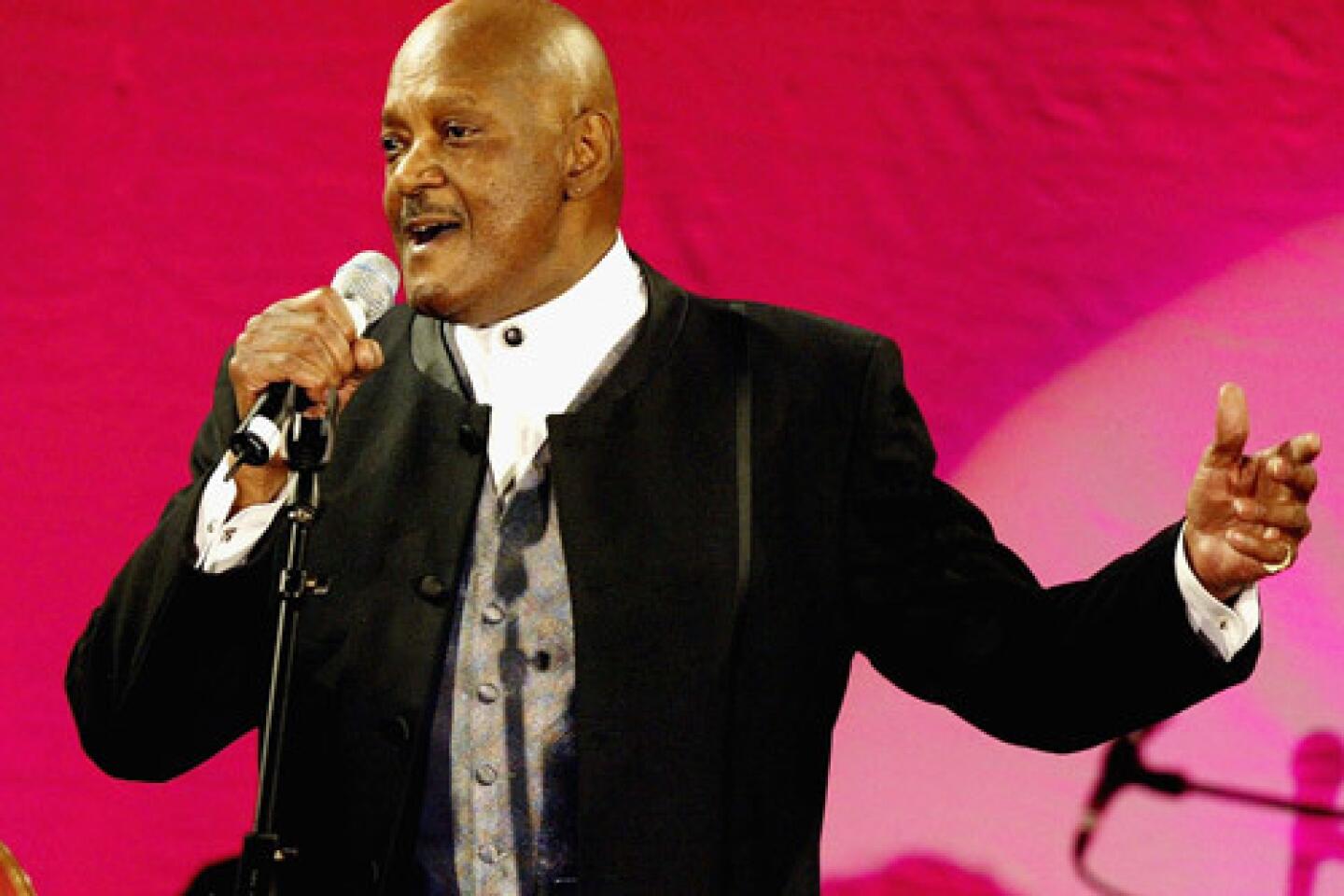Ross Barbour dies at 82; original member of the Four Freshmen
- Share via
Ross Barbour, the last surviving original member of the Four Freshmen, the influential close-harmony vocal quartet that came to fame in the 1950s with hits such as “Graduation Day,” has died. He was 82.
Barbour, who had lung cancer, died Saturday at his home in Simi Valley, said Dina Roth, the current group’s personal manager.
Barbour’s death came three months after that of another founding member, his cousin Bob Flanigan, the original lead singer. The two other founding members were Barbour’s brother Don and Hal Kratzsch.
Photos: Notable deaths of 2011: Music
The Barbour brothers and Kratzsch were students at Butler University’s Arthur Jordan Conservatory of Music in Indianapolis when they teamed with fellow student Marvin Pruitt to form a barbershop quartet called Hal’s Harmonizers.
When Pruitt dropped out because of stage fright, he was replaced by Flanigan. By then, the quartet had taken on a more jazz-oriented flavor and a new name, the Toppers.
A self-contained vocal-instrumental group — they all played instruments, with baritone Ross Barbour on drums — they were renamed by an agent. As the Four Freshmen did, they played their first date in a club in Fort Wayne, Ind., in September 1948.
“Ross always used to say they were trying to get the sound of five voices with only four, and since they were so inspired by the Stan Kenton Orchestra and especially the trombone section, they were trying to sound like the instruments,” Vince Johnson, who joined the Four Freshmen in 1999, told The Times on Monday.
“When the first tenor went up, the three other voices would stay either in the middle or lower register and sing full volume, which would create that open harmony,” Johnson said. “It was very characteristic of the Four Freshman sound.”
The group’s big break came after Kenton heard them sing in the Esquire Lounge in Dayton, Ohio, in 1950 and arranged to have Capitol Records record them.
After two flop singles, the Four Freshmen scored a hit in 1952 with “It’s a Blue World.”
Other hits followed, including “Mood Indigo,” “Day by Day,” “It Happened Once Before” and “How Can I Tell Her?”
Their 1956 hit “Graduation Day” was later covered by the Beach Boys, whose Brian Wilson has referred to the Four Freshmen as his “harmonic education.”
Indeed, the Four Freshmen’s innovative four-part harmonies influenced not only the Beach Boys but the Lettermen, the Four Preps, the Manhattan Transfer and many other vocal groups.
Between 1953 and 1958, the Four Freshmen won the DownBeat magazine Readers Poll as best vocal group of the year five times. They also received their first Grammy nomination in 1958, in the jazz-group category.
“We earned people’s respect by being honest in our music,” Barbour said in a 2001 interview with the Sunday Telegram of Worcester, Mass.
The Four Freshmen underwent many personnel changes over the years, with Barbour retiring from the group in 1977.
In addition to Johnson, the current members are Brian Eichenberger, Bob Ferreira and Curtis Calderon.
As Barbour said in the 2001 interview, “I think within the first four or five years, we had the dream to keep this alive and not let the group die when we did.”
Barbour, who was born Dec. 31, 1928, in Burnsville, Ind., chronicled his career in the 1995 book “Now You Know: The Story of the Four Freshmen.”
Barbour is survived by his wife, Nancy Sue; three children, Kent, Gary and Kathy Feese; and four grandchildren.
Photos: Notable deaths of 2011: Music
Start your day right
Sign up for Essential California for the L.A. Times biggest news, features and recommendations in your inbox six days a week.
You may occasionally receive promotional content from the Los Angeles Times.













